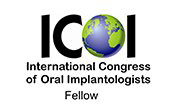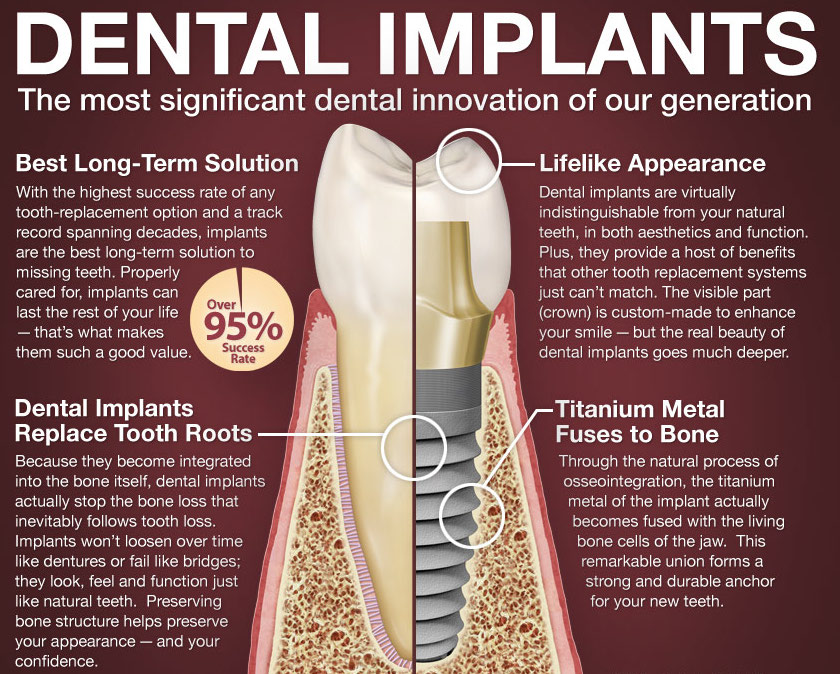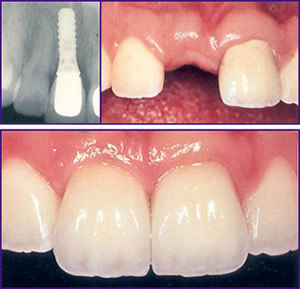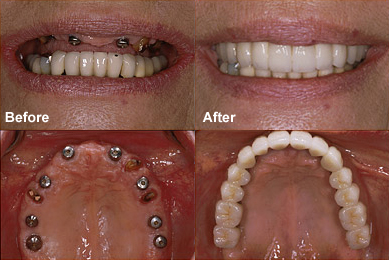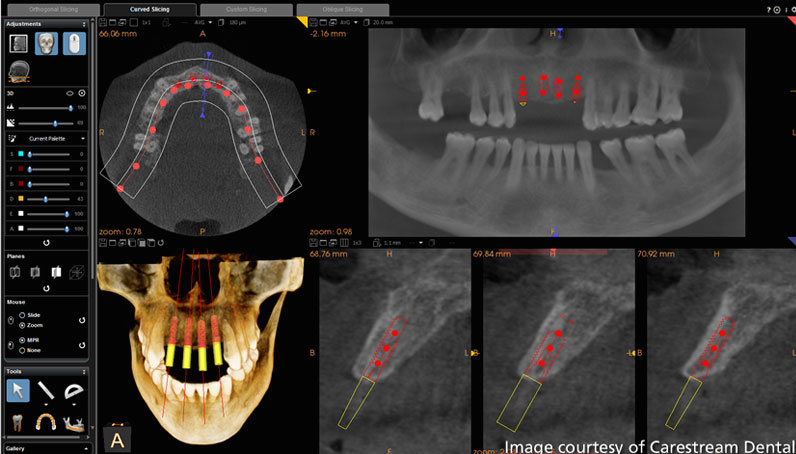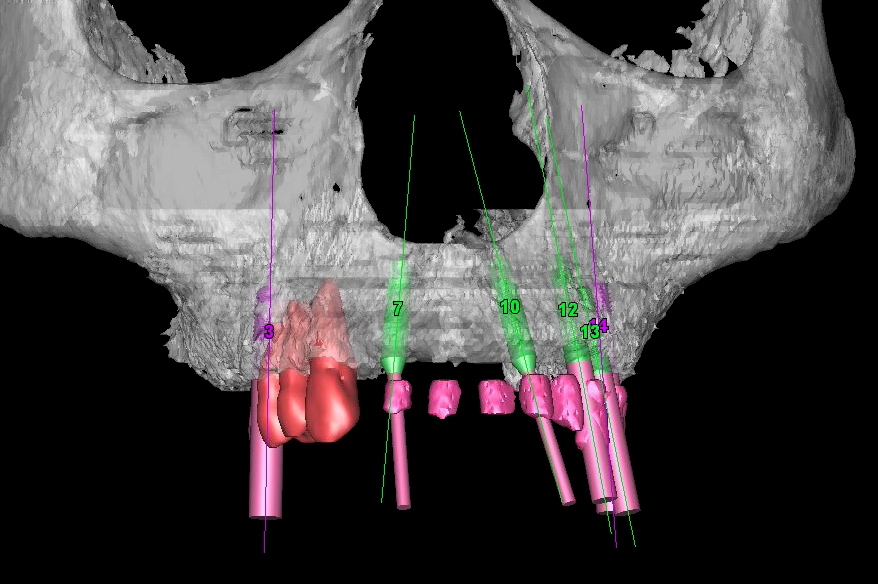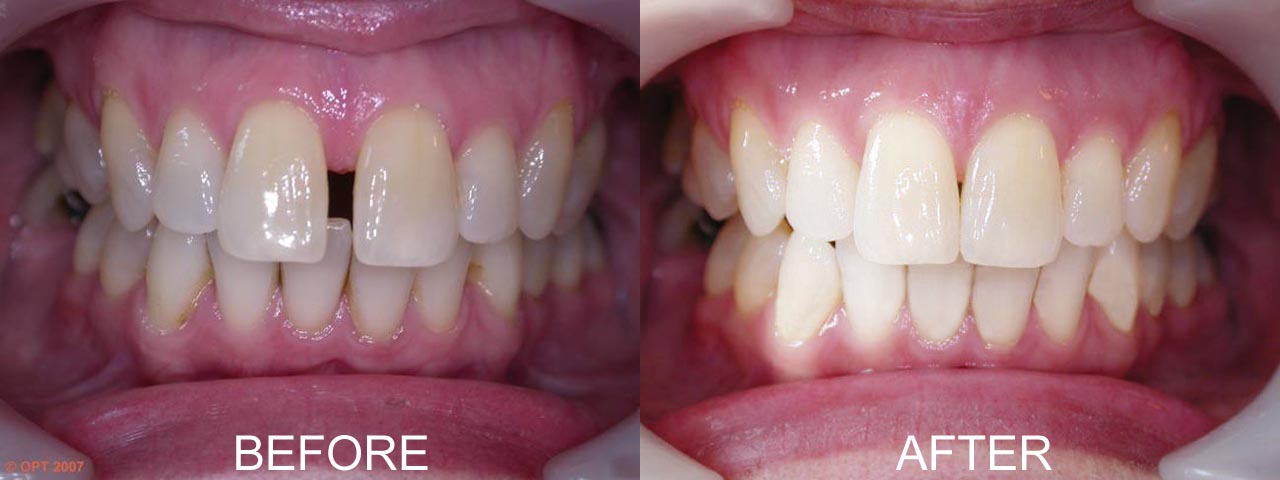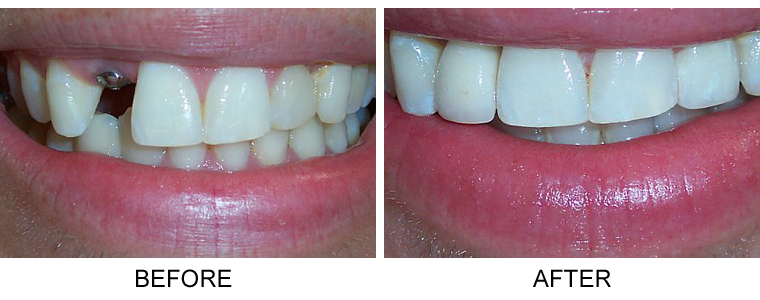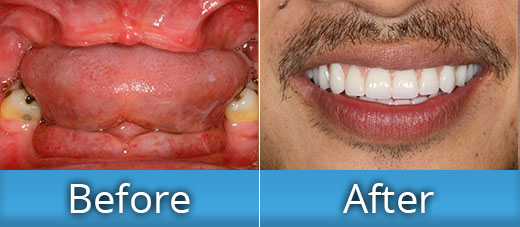Dental Implants in kalyannagar, Bangalore
During the last 20 years, dental implants have become a desirable alternative to other methods of replacing missing teeth. Excellent success rates and a range of available options give dentists a variety of new ways to treat and replace lost teeth.
Dental implants play an essential role in restorative dentistry. Because they are permanent prosthetics that are both natural-looking and cosmetically appealing, implants can be used either for cosmetic purposes or for complete full-mouth restorations.
WHAT IS THE SOLUTION FOR MISSING SINGLE /MULTIPLE TEETH ???
USE OF DENTAL IMPLANTS TO RESTORE MISSING SINGLE /MULTIPLE TEETH
When a single tooth is lost, other teeth surrounding it may begin to shift, resulting in an unsightly appearance. In the past, bridges were the preferred method of cosmetic restoration, but surrounding teeth had to be damaged in order to support the prosthesis. As an alternative, many patients seek dental implants as a means of improving cosmetic appearance following the loss of a tooth. A dental implant has the look, feel and function of a natural tooth, and it’s positioning within the bone where the prior tooth was once rooted prevents other teeth from shifting out of place. The result is a visually appealing smile the wearer can be proud of.
In some cases, all of a patient’s teeth need to be replaced due to decay or other oral health complications. The teeth are vital to communication and digestion, so replacement is no longer a matter of cosmetic preference – but necessity. Options for full mouth restoration are limited to dentures or dental implants. More and more patients are choosing implants over dentures, as they provide a permanent solution that requires less maintenance and also preserves more of the natural maxillofacial bones surrounding the teeth.
Who Qualifies for Dental Implants?
Your dentist can evaluate your case and tell you if you are a candidate for dental implants. Structurally, a dental implant is a titanium-based cylinder that replaces the missing tooth root. After a period of time, other parts are placed on the implant to enable your dentist to eventually place a crown (cap) on the implant. Implants can also be used to support full or partial dentures, dramatically improving denture retention and stability.
Dental implant patient requires immaculate planning and a dedicated team to complete job. Most patients with adequate bone mass can have implants, although it varies among individuals. Typically an x-ray and CBCT-scan are performed to determine if you have enough bone to place the implant, as well as to verify the size and kind of implant that should be placed.
COMPUTER GUIDED IMPLANT SURGERY
The application of computed tomography (CT) and the use of computer software for dental implant therapy have significantly increased during the last several years. Dental implant positioning can be either “partially guided,” where only osteotomy sites are prepared using sequential, removable surgical drilling guides (generated using computer software and through the process of stereolithography), or “totally guided,” whereby one guide is used for osteotomy site preparation as well as implant delivery
BENEFITS OF DENTAL IMPLANTS
1. Better esthetics:
Since implants are placed in the gum similar to the way a natural tooth is supported, they offer a more realistic and natural look compared to other alternatives.
2. Reduction of bone resorption:
When a tooth is lost, the supporting bone structure gradually recedes. Placing an implant in that empty space significantly reduces the speed of bone resorption and provides stability for this valuable tissue.
3. Retention:
Patients who have experienced removable full or partial dentures know that keeping their dentures in place is always a challenge. Dental implants offer a great improvement to denture retention for all patients. In some cases the denture can be secured to a group of implants with special screws that stabilize the denture completely.
4. Preserving natural tooth structure:
Often the preferred method of replacing a single missing tooth is a bridge. Bridges require extra preparation for the surrounding teeth to ultimately connect 3 or more teeth. This negatively impacts your health by making the task of retaining your teeth more difficult and by often requiring the destruction of existing tooth structure to create room for the new bridge. An implant is mostly an independent unit and does not negatively affect the adjacent teeth.
DENTAL IMPLANTS VS DENTAL BRIDGES? WHICH ONE IS BETTER
Missing teeth and do you want a fixed teeth option?? then Dental Implant and Dental Bridge are the only two options to get fixed teeth. But am sure you are wondering which one is better and which one to opt for??
In the past, a dental bridge was the only non-removable option, and if it involves more than just the missing tooth. The adjacent teeth need to be “prepped” by removing most of the enamel in order to fabricate the tooth bridge. With dental implants however, the dentist replaces just the individual tooth for a result that is stronger and permanent.
All it takes is a simple dental procedure to get your dental bridge fixed. It’s much quicker and easier to get dental bridges (only a few weeks at the most), whereas implants may take several months. Bridges are generally more affordable than implants, and they are still strong and supportive for your mouth.
But there are disadvantages in having dental bridges :
* The supporting teeth for the bridge on both ends should be strong and healthy.If one or both of them are weak .Bridge is not recommended.
* Since they are not removable, they are more difficult to maintain.
* Some of the natural surrounding teeth will be removed for the placement of dental bridges.
* Although they last for several years, they still need to be replaced every 10 years.
Changes in Your Oral Care Routine
Your ability to keep your mouth healthy will be easier with an implant. Dental bridges are cemented or “fixed” in the mouth, and involve at least three crowns connected together to fill the space of the missing tooth. This design creates challenges when brushing and flossing, so extra oral hygiene instruction and meticulous home care are crucial.
Implants also support jaw health. Your bone stays healthy and strong, which impacts both the shape of your face and oral health positively as you age. Implants naturally mimic the function and feel of a real tooth and often look better than bridges
<<< CLICK HERE TO VIEW SMILE GALLERY>>>
Frequently Asked Questions
Before & After
About the Doctor
Our Services

Dental Implants
Dental implants play an essential role in restorative dentistry. Because they are permanent prosthetics that are both natural-looking and cosmetically appealing

Cosmetic Dentistry
Do you have a special event or photo opportunity approaching that you'd like to look your best for? Or are you looking for a quick, easy way to subtract years from your face

Restorative Dentistry
In the past, dentists could only treat cavities and tooth ailments with silver and mercury fillings. Modern restorative dentistry has replaced these unsightly fillings
